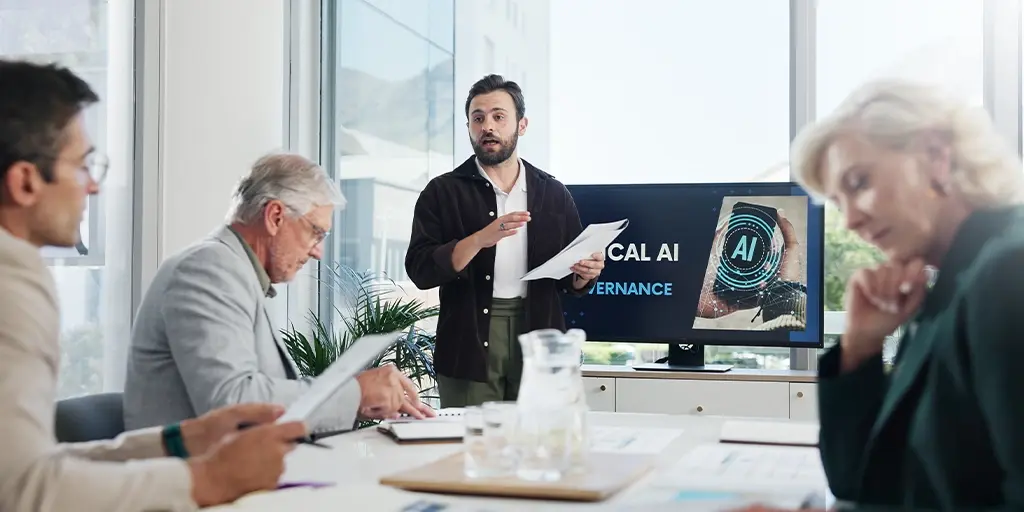

The Future of Auto Accident Leads: How AI is Reshaping Case Acquisition
Posted March 14, 2025 by Kevin Chern
“The best way to predict the future is to create it.” – Peter Drucker
Just a decade ago, personal injury law firms relied heavily on TV ads, billboards, and word-of-mouth referrals to generate auto accident leads. Fast forward to today, and the landscape has changed dramatically. Law firms now harness artificial intelligence (AI) to automate lead generation, optimize conversions, and outmaneuver the competition in ways that were once unimaginable.
Take the case of a mid-sized law firm in Florida. Struggling with high client acquisition costs and low lead quality, they adopted an AI-driven lead generation platform. Within six months, their cost-per-acquisition dropped by 35%, and their lead conversion rate improved by 40%. AI didn’t just generate more leads; it helped them acquire better leads with higher case value.
So, how exactly is AI revolutionizing auto accident case acquisition, and what does the future hold for law firms looking to leverage this technology?
The Auto Accident Lead Generation Problem
Personal injury firms face significant challenges when it comes to lead generation:
- High competition: The market is saturated, with firms bidding aggressively for leads.
- Lead quality issues: Many firms waste time and resources chasing unqualified leads.
- Expensive marketing: Traditional channels like pay-per-click (PPC) and TV ads have soaring costs.
- Slow response times: In a digital-first world, slow lead follow-ups lead to lost clients.
AI is solving these problems by introducing smarter, data-driven strategies that improve efficiency, targeting, and case acquisition.
AI-Powered Lead Generation: What’s Changing?
1. Predictive Analytics for Targeting the Right Clients
Gone are the days of blindly advertising to a broad audience. AI-driven predictive analytics processes vast amounts of data to identify high-value leads. Algorithms analyze behavioral patterns, accident reports, and online activity to predict which potential clients are most likely to need legal assistance.
According to a study by McKinsey, firms using AI-driven analytics see a 25% increase in conversion rates and a 20% reduction in wasted ad spend.
2. AI Chatbots and Virtual Assistants for Instant Engagement
Speed matters. Studies show that 78% of accident victims hire the first lawyer they speak with (Legal Trends Report, 2024). AI-powered chatbots engage leads 24/7, capturing details and pre-qualifying prospects before they even speak with an attorney.
Platforms like Drift, ChatGPT, and HubSpot AI bots allow law firms to:
- Instantly respond to inquiries.
- Schedule consultations.
- Pre-screen leads to identify case viability.
3. AI-Driven PPC Optimization: Smarter Ad Targeting
Google Ads and Facebook PPC campaigns have long been a staple for law firms, but AI is making them far more efficient. AI analyzes historical ad performance, user behavior, and bid strategies to optimize campaigns in real time.
A study by WordStream found that AI-powered PPC automation can increase ad efficiency by 35% while reducing cost-per-click (CPC) by 20%. Firms investing in AI-driven PPC see stronger ROI compared to those relying on manual bid strategies.
4. Automated Lead Scoring: Separating High-Value Cases from Time-Wasters
AI-based lead scoring assigns a value score to each inquiry based on predefined criteria, such as:
- Accident severity (police reports, medical history, vehicle damage data).
- Client intent (keyword searches, website engagement patterns).
- Liability factors (clear vs. contested cases).
This ensures that law firms prioritize high-value leads and reduce wasted time on unqualified cases.
5. AI-Powered Social Listening: Tracking Potential Clients in Real-Time
Social media platforms are goldmines for lead generation. AI tools like Brandwatch, Hootsuite, and Sprinklr track conversations about accidents, injuries, and legal help in real time, allowing firms to engage potential clients before competitors do.
A 2024 study by Gartner found that firms leveraging AI-driven social listening increased lead acquisition by 30% over competitors relying solely on traditional marketing.
6. Voice Search Optimization: Reaching Clients Where They Search
With the rise of Alexa, Siri, and Google Assistant, voice search is changing how potential clients find legal services. AI-driven SEO strategies now include long-tail, conversational keywords that match how accident victims phrase their queries, such as:
- “Who’s the best accident lawyer near me?”
- “What should I do after a car crash?”
Law firms optimizing for voice search see an average 30% increase in organic lead generation (Search Engine Journal, 2023).
Addressing AI’s Challenges in Legal Lead Generation
While AI brings incredible advantages, it’s not without challenges. Ethical concerns, compliance issues, and data privacy laws must be considered. Here’s how firms can mitigate risks:
1. Ensuring Ethical AI Use
- Follow ABA and state bar advertising regulations when using AI-driven targeting.
- Avoid misleading or aggressive AI-generated ad copy.
2. Data Security & Privacy Compliance
- Adhere to GDPR, CCPA, and HIPAA regulations when handling client data.
- Use secure, encrypted AI platforms to protect sensitive information.
3. Avoiding Over-Reliance on Automation
- AI should enhance, not replace human decision-making.
- Maintain a personalized client experience, even with automated workflows.
The Future of AI in Auto Accident Lead Generation
The AI revolution in legal lead generation is just beginning. Over the next 5 years, expect advancements such as:
- AI-driven video marketing – Personalized client engagement through automated video content.
- Augmented reality (AR) consultations – Virtual legal consultations using immersive AI technology.
- AI-powered fraud detection – Eliminating low-quality or fraudulent leads before they reach attorneys.
- Legal CRM Integration – AI seamlessly integrating into client management systems for smarter case tracking.
Final Thoughts
The future of auto accident lead generation belongs to firms that embrace AI, adapt to new technologies, and outpace competitors in client acquisition. AI doesn’t just increase the quantity of leads it ensures higher-quality, case-winning clients.
Is your firm prepared for the AI-driven evolution of legal lead generation, or are you still relying on outdated marketing methods?



